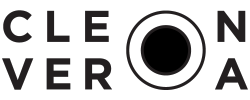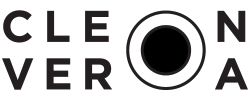News
The Truth Behind Fad Diets

For many years people have waged wars against weight gain and obesity. Whether there was a medical professional involved or not, we’ve all tried to alter our eating habits and endured bland tasteless food in hopes of shedding a few pounds. And countless times did we fail to achieve our goals, foiled by a fat juicy burger that we ate in shame and finished with regret.
Now we list down and unfold some of the popular diets we’ve all heard and tried to better understand “Where did we go wrong?”. Are these diets really just a fad or do they have some credibility to their claims? What were the risks we took when we decided to cut that delicious bread out of our meals? Were there really benefits to the days we tolerated being hungry?
|
 A fad diet is an eating plan that is sold as a smart approach to weight loss or health improvement, in a short amount of time. It promises an array of short-term changes that require little to no effort at all. It is often without the backing of solid science. Fad diets are popular thanks to the ingenious marketing of the food industry. These diets are often promoted by companies looking to sell their diet catered merchandise. |

Fad diets are designed to work in a short amount of time. You initially see results and can lose a decent amount of weight, but what you actually lose is usually water or muscle mass. While there are some positive results at first, the restrictions that come with most fad diets are also unhealthy and unrealistic to maintain. This just leads to failure or a subscription to another fad diet. Another problem with fad diets is the lack of nutrition that could lead to a lot of additional health problems, including negative effects on hormonal health and metabolism. If you lose weight too quickly and there is no support to help you keep the weight off, you could get stuck in a cycle of losing and gaining weight. These diet plans also affect mental health by causing stress, guilt, and anxiety over food choices. It can leave you tired, hungry, and weak.
|

|
|
|
 A low-fat diet is an eating plan that restricts fat, as well as saturated fat and cholesterol. Intended effects The primary reasons for choosing a low-fat diet tend to be to help reduce overall calorie intake and to improve cholesterol levels. Low-fat diets are intended to reduce the occurrence of conditions such as heart disease and obesity. Pros/Advantages
Cons/Risks
Restrictions
|
|
The gluten-free diet restricts foods that contain the protein gluten. These include wheat, rye, and barley. It was designed for people with gluten sensitivity and people with Celiac disease but is marketed as a healthier food option for regular people by food manufacturers. Intended effects
Pros/Advantages
Cons/Risks
Restrictions The diet restricts consuming anything with gluten. This means you’ll probably have to get processed foods that had gluten taken out or food that naturally doesn’t have gluten. |
|
A paleolithic diet, or simply the paleo diet is a dietary plan based on foods similar to what might have been eaten during the Paleolithic era. Which researchers believe consisted of whole foods. Intended effects The purpose of a paleo diet is to return to a diet that's more like what early humans ate. The reasoning is that the modern diet that emerged with farming practices is unsuitable for the human body. People that practice the Paleo diet aim to lose weight or maintain a healthy weight without cutting on calories. Pros/Advantages
Cons/Risks
Restrictions In its purest form, the paleo diet allows you to eat only those foods that humans in the Paleolithic area. This means whole foods or unprocessed foods. |
|
The ketogenic diet or keto diet, is a high fat, moderate protein, low carbohydrate eating plan. It involves drastically reducing carbohydrate intake and replacing it with fat. This reduction in carbs puts your body into a metabolic state called ketosis. Intended effects The goal of the keto diet is to lose drastically lose weight by burning fat for energy instead of carbohydrates like we normally do. This metabolic state of the body is called Ketosis. Pros/Advantages Aside from the obvious weight loss, following the Keto diet may also reduce appetite. Other claims are
Cons/Risks
Restrictions Any food that is high in carbohydrates is restricted. You are, on the other hand, allowed to consume meat, fatty fish, eggs, butter, cream, cheese, nuts, avocados, low-carb vegetables, and healthy oil. |
|
Mediterranean DietThe Mediterranean diet is a meal plan that is based on the traditional diets of people from the 1960s of countries that surround the Mediterranean Sea, such as Crete, Greece, Spain, and Southern Italy. Intended effects Mediterranean diet is about eating fresh, wholesome food to lower the risk of chronic diseases and prevent early death. It also focuses on daily physical activities and sharing meals with others that are vital elements that would have a profound effect on your mood and mental health. Pros/Advantages
Cons/Risks
Restrictions This diet recommends reducing red meat and added sugar consumption. |
|
The Atkins Diet is a popular low-carbohydrate dietary plan developed in the 1960s that restricts carbohydrates while emphasizing protein and fats. It is similar to the Keto diet but with fewer restrictions on how much carbohydrates are taken. Intended effects The purpose of the Atkins Diet is to change your eating habits to help you lose weight and keep it off. It claims a healthy lifelong approach to eating, whether you want to lose weight, boost your energy or help improve certain health problems, such as high blood pressure or metabolic syndrome. Pros/Advantages
Cons/Risks
Restrictions The person goes through 4 phases of the diet while consuming different amounts of carbohydrates each time.
Depending on the phase, people may eat vegetables that are rich in fiber and nutrients, low sugar high fiber fruit, complex carbs, and plant fats. |
|
The South Beach Diet is a popular commercial weight-loss diet and has been popular for over a decade. It’s another lower-carb diet like Atkins that has been credited with producing rapid weight loss without hunger, all while promoting heart health. Intended effects The south beach diet aims to achieve weight loss by eliminating carbohydrates though it claims not to be a traditional low-carb diet. It instead focuses on avoiding certain carbohydrates, based on their glycemic index (GI) score. Pros/Advantages
Cons/Risks
Restrictions You evaluate food based on the glycemic index. This will indicate how your blood glucose is likely to be affected by specific foods. There are three phases that come with different restrictions.
|
|
The Vegan diet in its purest form is a diet that completely forbids the consumption of all animal products including meat, eggs, and dairy. Intended effects There is no doubt whatsoever that eating fruits and vegetables will lead to a healthier life. The vegan diet is often recommended to those with health problems and conditions. But a lot of those who switch to or practice being vegan do so in the belief that all animals have a right to life and freedom. This includes animals that have long been consumed around the world for centuries. Pros/Advantages
Cons/Risks
Restrictions A vegan diet restricts all forms of food from animals including eggs and dairy. Vegetarians, however, do consume eggs and dairy as long as it doesn’t involve slaughter animals. |
|
The juice cleanse is a detox program that involves consuming only fruit and vegetable juice from 3-10 days to lose weight and detoxify the body. Intended effects It promises weight loss and to flush out the numerous toxins that routinely enter the body. Pros/Advantages
Cons/Risks
Restrictions The diet will strictly consist of juices from fruits and vegetables |
|
There are a few variations of Intermittent fasting available. All of these involve rotating periods of eating and fasting in a pattern or as a routine. Intended effects Fasting will get you a significant reduction in blood sugar levels, insulin levels, and a drastic increase in human growth hormone. Most people get into intermittent fasting to lose weight while others do it for metabolic health benefits, as it can improve different risk factors and health markers. Pros/Advantages Fasting increases the levels of growth hormones, improves insulin sensitivity, and initiates cellular repair processes. Intermittent fasting is an easy and cheap diet that can help you lose weight without any food restrictions. Cons/Risks Hunger is the main drawback of intermittent fasting. It can make you feel weak and brain function might not be at an optimal level. You should not be fasting if you are already underweight or have a history of eating disorders. Restrictions There are no restrictions to what you eat but rather a schedule on when you eat. This will differ depending on the type of intermittent fasting you’re on. There are different types of intermittent fasting available.
|
|
Weight watchers (now just WW) is a paid digital, workshop, or personal membership where you track and log everything you consume. The program awards or deducts SmartPoints depending on what you eat. It’s basically a calorie counting program without having to do the math. Intended effects Weight watchers’ goal is to inspiring healthy living and improving overall well-being by slowly altering your eating habit. But people pay for the program to lose weight since it is one of the best weight loss programs out there. Pros/Advantages
Cons/Risks
Restrictions People on the Weight Watchers diet are restricted by the points given to them depending on their program. They are required to track their meals and physical activities. A weekly weigh-in is also mandatory. |
|
Trying to lose weight is certainly harder than gaining it. But trying to lose weight while staying healthy is grueling. Most of these diets aim for a simpler solution by eliminating the food that makes us gain weight. But most of them have drawbacks that you just can’t ignore and accept. From what we’ve learned is that it’s all about balance. You can’t have too much of anything, and you certainly can’t take away too much of anything either. Despite their claims and supposedly backing of science, it’s quite hard finding studies that back these diets. A simple google search should’ve sufficed but most data on the search results come from “health sites” that seem to have a knack for defending popular diets like these. Only there on their site will you find the “science backing” they so proudly declare with every paragraph. There are surely proven results and a lot of true testimonies to the success of each diet. But it does make you wonder if that weight loss is caused by their ingenious dietary plans or is it simply because they caused so much trauma to their body that they actually stressed themselves to being slim. Every person is different, so shouldn’t everybody have a different diet plan that suits them? The safest and most logical approach to health and fitness should be to reach out to medical professionals who have spent their lives studying the human body. Get in touch with a nutritionist or a dietician so they can come up with a dietary plan catered especially for you. Don’t just take advice from coaches or diet veterans that know nothing about you or your body. It’s ok to read up on things that you think may help. But before you starve yourself, make sure to consult a professional. Ask them about the diet you just read. Like they always say, if it’s too good to be true, it probably is. |

















